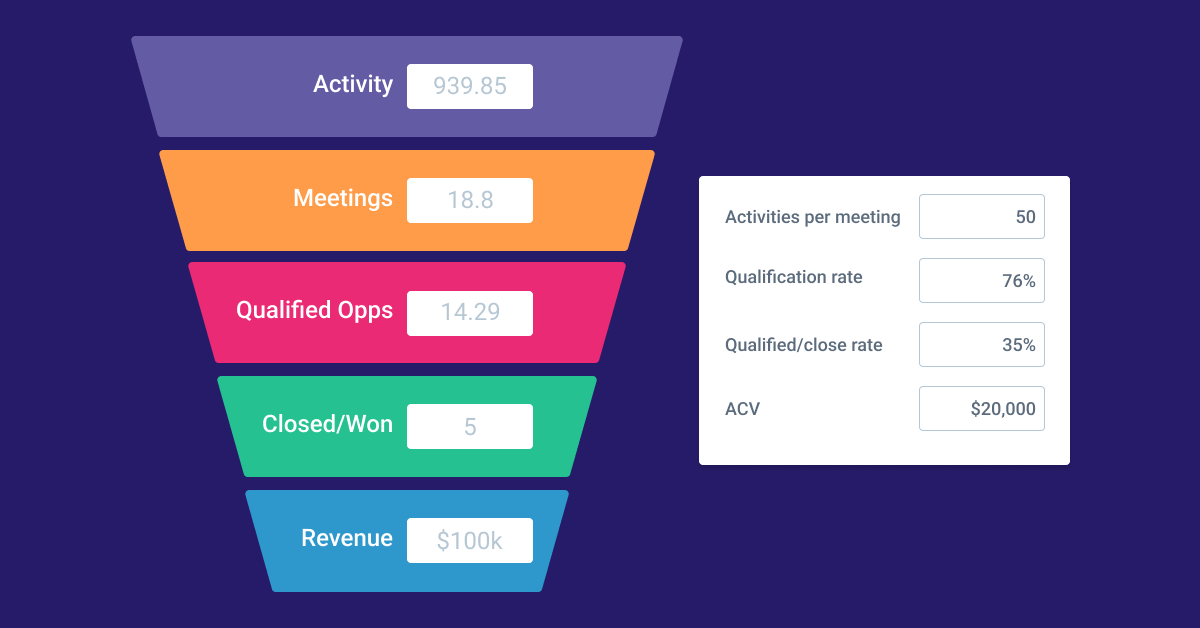This blog answers “what does Ops mean?” and how this role translates across industries.
Acronyms and abbreviations exist virtually everywhere, especially in the business world.
These shortened versions of common terms can cause confusion with multiple meanings depending on the industry and context.
For example, if you Google common sales abbreviations like “AE” or “SDR”, without specifying “in sales”, you’ll see that these terms have many meanings beyond Account Executive and Sales Development Rep.
So, it’s not surprising that anyone not familiar with the business world might not know what the abbreviation “Ops” means.
Ops in business is short for operations. This department ensures the organization runs efficiently and profitably and typically falls into functions like Product, Marketing, Revenue, and Sales.
Ops has exploded into popularity in the past few years, and with good reason.
The call for business efficiencies is especially amid a recession. As of February 2023, for instance, Ops roles dominated job boards, including LinkedIn which had more than 300,000 open roles including
- Operations Manager: 205,427
- Sales Operations: 34,257
- Revenue Operations: 73,470
Searches for other Ops roles yielded similar results, too.
But one thing to remember is that businesses treat and define Ops roles differently according to the industry and size of the company.
Below, we take a look.
Try QuotaPath for free
Try the most collaborative solution to manage, track and payout variable compensation. Calculate commissions and pay your team accurately, and on time.
Start TrialHow Ops differs between industries
Although Ops principles are the same across industries, the specific tasks and challenges Ops teams face can differ significantly.
Here are some examples of Ops teams across industries:
Retail
Retail Ops teams focus on supply chain management, inventory management, and logistics. They are responsible for ensuring that products are delivered to the right stores at the right time and in the right quantities. They also monitor inventory levels for consistency in customer satisfaction and revenue. Retail Ops teams may also manage third-party logistics and transportation providers to provide timely and cost-effective delivery of goods.
Healthcare
Ops teams in healthcare focus on managing the delivery of patient care and keeping medical facilities running smoothly. Healthcare Ops manage patient flow, staffing, and equipment and supply management. They may also oversee compliance with regulations like HIPPA, ensure patient data security manage procurement, and coordinate seamless patient care with other healthcare providers.
Manufacturing
In manufacturing, Ops teams oversee the production process, uphold quality standards, and orchestrate on-time deliveries. They also lead the supply chain, logistics, inventory management, production planning, workforce management, cost control, and environmental and safety compliance.
Technology
In technology, Ops teams focus on managing the infrastructure that supports software applications and services. They ensure the smooth operation of hardware, software, and networking components and minimize downtime. Sometimes they also manage cloud infrastructure, data centers, and cybersecurity.
Differentiating between various Ops Roles in SaaS
To further complicate the understanding of Ops, Software-as-a-Service (SaaS) companies, have created their own set of business Ops roles such as Sales Ops, RevOps, and more. Take a look.
Sales Ops helps Sales achieve and maintain consistent growth by handling activities like sales strategy, territory structure and alignment, sales process optimization, and compensation plans.
Marketing Ops supports the systems and processes necessary for Marketing to successfully perform their roles. The systems and processes marketing ops oversees include user data, forms, conversational marketing, and email operations.
RevOps combines Sales, Marketing, and Support, to increase visibility and communication (and therefore results) by eliminating silos across these departments. RevOps focus on revenue growth and tracking related metrics like customer acquisition, bookings, recurring revenue, customer satisfaction, and churn.
SaaS Ops, a fairly new field, came to exist due to the constant addition of software to company tech stacks. SaaS Ops manages all aspects of SaaS at an organization, including processes such as budgeting and approval, onboarding and offboarding, security risk and compliance management, and SaaS administration automation.
Product Ops oversees activities like market research, quality assurance, and business process improvement to ensure the success of a product.
DevOps creates coordination and collaboration between formerly siloed roles like development, IT operations, quality engineering, and security. DevOps is responsible for activities like application planning, development, and delivery to increase confidence in applications and respond to customer needs to reach business goals faster.

Build a Sales Funnel
Use our free sales funnel resource to see how many meetings your team needs to book to hit quota.
Calculate NowOps tools and technologies for SaaS companies and startups
These Ops teams clearly have a full plate of responsibilities and hardships. But, like the spike in available roles, new tools and technologies have emerged in sidestep.
For example, we sourced a few of the popular tools and technologies commonly used by SaaS and startup Ops teams
Hubspot Sales CRM: Helps sales teams close more deals, manage client relationships, and track team activities.
Trello: A project management platform that provides visibility across relevant tasks, files, and stakeholders, plus the ability to easily update and adjust as priorities change or work is completed.
Qwilr: Helps sales reps and ops teams effortlessly create proposals and sales materials. One of the more popular sales proposal software options.
Chili Piper: Automates the handoff from Sales to Customer Success to optimize the entire customer journey.
BetterCloud: Streamlines SaaS management by automating onboarding, offboarding, and mid-lifecycle changes, SaaS application access and entitlements, and security policies.
QuotaPath: Automates sales compensation processes and commission tracking and payouts.
Intercom: A customer messaging platform that helps companies engage with their customers in real time.
Mixpanel: An analytics platform that helps companies track user behavior and measure the effectiveness of their product.
These tools can help SaaS companies and startups improve their operations, streamline their workflows, and provide better customer experiences all around.
Now can you answer “what does Ops mean?”
Having read through the nuanced Ops roles from industry to department, you should now feel pretty comfortable telling a friend about the significant role Ops plays in an organization.
As a recap, Ops oversee cost containment, product development, customer satisfaction, efficient workflows and communication across nearly every department within an organization, and, of course, overall profitability.
For additional resources and tools to increase Sales and RevOps efficiencies, check out QuotaPath’s library of tools.
Compensation Hub
Sales Compensation Trends to Know in 2023
Calculate Quota:OTE Ratio
Sales Compensation Calculator
Build a Sales Funnel
Guide: How to Build a Compensation Plan Your Sales Team (& Future Investors) Will Love
Sales Commission Tracker Template
About QuotaPath
QuotaPath removes the lift of sales compensation management and commission tracking by automating the process from plan design through earnings payouts.
Sync your CRM, like HubSpot or Salesforce, and give your Sales team immediate access to their real-time and forecasted earnings and attainment. Start a free 30-day trial, or book a time to learn more.



